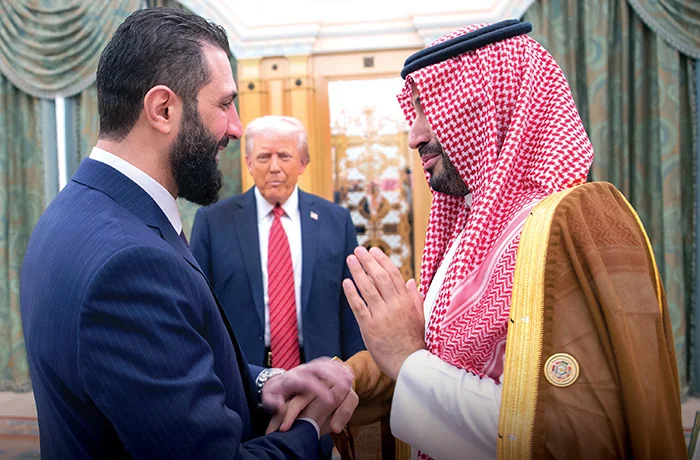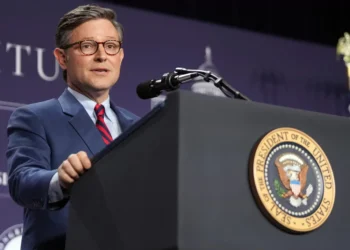When then-President Barack Obama, along with six world powers, including Russia and China, negotiated a nuclear deal with Iran in 2015, even its most ardent supporters acknowledged it was flawed.
After President Donald Trump took office for his first, nonconsecutive term, Defense Department leaders, including Defense Secretary Jim Mattis and Joint Chiefs of Staff Chairman Joseph Dunford damned it with faint praise. The pair called the Joint Comprehensive Plan of Action “better than nothing.”
While the JCPOA kept Iran in check when it came to enriching uranium needed to make a nuclear bomb, it did little to constrain the other aspects of becoming a nuclear weapons state, such as developing warheads and missiles. And importantly, it allowed Iran to maintain a massive nuclear infrastructure that was far beyond what’s needed for a peaceful energy program.
Trump, declaring it “one of the worst deals ever made by any country in history,” tore up the agreement in 2018 so he could impose crippling economic sanctions meant put “maximum pressure” on Tehran.

“That deal would have expired already,” Trump said last month, “and that gave them a clear path to a nuclear weapon. “That’s why I terminated the deal. … It was way too short.”
When Trump returned to office in January, he was given intelligence showing that during the intervening four years, Iran had been racing at breakneck speed to develop a crude nuclear weapon, while enriching uranium at 60%, a level that’s close to the 90% needed to make a bomb.
“Trump’s decision to walk out of the agreement in 2018 eventually gave the Iranians the opening to go race ahead,” national security correspondent David Sanger said on a recent New York Times podcast. “They said, look, ‘If you’re not going to abide by the rules in this agreement, we certainly aren’t.’”
So now, even though the United States accused Iran of hiring contract killers to assassinate Trump last year, he’s anxious to make a new deal, one that would cement his reputation as more than just a deal-maker.
“My greatest hope is to be a peacemaker,” Trump said during his recent Middle East trip. “I don’t like war.”
While over the past few months, Trump has made various threats about “great danger” or “doing the obvious,” if Iran doesn’t make a deal, more recently, he has toned down the bellicose rhetoric.
“We’re trying to work on Iran to get that solved without having to get into any bombing, as we say, ‘big bombing,’” Trump said in early May. “I don’t want to do that.”
While Trump couldn’t get a new deal during his first term, and former President Joe Biden’s efforts to revive the 2015 deal flopped, circumstances have changed in a way that makes this a particularly propitious time for a breakthrough.
“Iran is in the worst negotiating position I’ve seen in my decades in uniform,” retired Adm. James Stavridis, a former supreme NATO commander, said on CNN. “All their proxies are bent or broken. Hamas, Hezbollah, Syria, the Houthis are backing down. And their air defense system is minimized. I think the president is right to have both an opportunity for the Iranians to come to the table and to hold in the background the Sunday punch.”
“I want to make a deal with Iran,” Trump said while in Saudi Arabia. “I want to do something if it’s possible. But for that to happen, it must stop sponsoring terror, halt its bloody proxy wars, and permanently and verifiably cease its pursuit of nuclear weapons. They cannot have a nuclear weapon.”
In an interview with NBC, Trump seemed to rule out Iran retaining any civilian nuclear energy program, telling Meet the Press host Kristen Welker, “Total dismantlement … that’s all I’d accept.
But when asked in the Oval Office a few days later if Iran could have a civilian enrichment program so long as it’s not producing bomb-grade uranium, Trump said, “We haven’t made that decision yet. We will, but we haven’t made that decision yet.”
The U.S. and Iran have held four negotiating sessions in Muscat, the capital of Oman, which has been mediating the mostly indirect talks, and so far, the discussions have been surprisingly cordial and productive.
“I think you have very good things happening there,” Trump said after the latest session. “They can’t have a nuclear weapon, but I think that they are talking intelligently.”
Despite the mistrust on both sides, there is a lot of common ground. Neither side wants to return to the 2015 deal, and neither side wants war.
“We cannot imagine President Trump wanting to become another U.S. president mired in a catastrophic war in the Middle East,” Iranian Foreign Minister Seyed Abbas Araghchi wrote in a Washington Post op-ed last month, while noting there is one vital commitment from the old deal that he would endorse, namely that “Iran reaffirms that under no circumstances will Iran ever seek, develop or acquire any nuclear weapons.”
Last month, the New York Times reported that Trump “waved off” a request from Israel for support of a plan to attack Iranian nuclear facilities as soon as this month, frustrating Israeli Prime Minister Benjamin Netanyahu, who found himself increasingly out of step with Trump.
“I wouldn’t say ‘waved off,’” Trump said when asked about the report. “I’m not in a rush to do it because I think that Iran has a chance to have a country and to live happily without death, and I’d like to see that.”
Trump’s pitch to Iran is very similar to the approach he used to try to convince North Korean Supreme Leader Kim Jong Un to give up his nuclear weapons in return for U.S. aid, developing beachfront condos and hotels along North Korea’s coastline.
“I’m all for Iran. I want them to have a wonderful country and make a lot of money. They have great oil reserves,” Trump has said more than once.
“I know the Iranian people,” Trump said. “They’re incredible people — always have been very smart, very energetic, very successful people, and I don’t want to do anything that’s going to hurt anybody. I really don’t. I’d like to see Iran thrive in the future, do fantastically well.”
While Kim didn’t bite on the condo pitch, Trump’s gotten a more receptive response from Araghchi, Iran’s chief negotiator, who says his country is anxious to partner economically with the U.S.
“The trillion-dollar opportunity that our economy presents may be open to U.S. enterprises,” Araghchi said in published remarks that he had hoped to deliver to an international nuclear conference last month.
“Iran currently operates one reactor at the Bushehr Nuclear Power Plant,” he said. “Our long-standing game plan is to build at least 19 more reactors, meaning that tens of billions of dollars in potential contracts are up for grabs. The Iranian market alone is big enough to revitalize the struggling nuclear industry in the United States.”
That kind of talk is music to Trump’s ears.
But the biggest stumbling block remains Iran’s insistence that it be permitted to enrich uranium for a peaceful energy program, as a founding signatory to the Non-Proliferation Treaty.
“Iran has every right to possess the full nuclear fuel cycle,” Araghchi wrote in a post on X. “Moreover, there are several NPT members which enrich uranium while wholly rejecting nuclear weapons.”
But former Trump Secretary of State Mike Pompeo argued in an essay last month that it would be a grave mistake.
WHITE HOUSE CORRESPONDENTS’ ASSOCIATION SLAMS TRUMP AFTER NEWS WIRES CUT FROM FOREIGN TRIP
“This regime has shown no intention of becoming a normal country but rather daily evinces depravity,” Pompeo wrote. “A fake deal focused solely on nuclear enrichment will result in far less happiness and more death.”
“In trying to make a deal, we must not lose sight of the only acceptable outcome: the elimination of Iranian nuclear enrichment, the cessation of its financial and political support for terror proxies, and, ultimately, peace with its neighbors,” he added.













